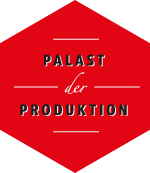Product Range

Product range is a lecture and discussion series about the changing world of work, placed in the palace of production (www.palast-of-produktion.de) on the premises of the former Bremen wool combing works (BWK). The cultural change from an industrial to a service economy is changing our world of work fundamentally. Knowledge and skills are the most important resources. Normal working conditions with regulated working hours and pre-defined work content decreases. Temporal and spatial flexibility are demanded. The boundaries between leisure and work dissolve. Individual job design, creativity and independence have gained a growing importance. In addition to employment and the classical forms of self-employment the number of new forms of freelancers and microentrepreneurs increase. Network- and project-oriented models of work organization grow. The male breadwinner model has already become obsolete a long time ago. The series Product Range reflects the profound changes in the working world and its social and individual impact in selected lectures and open discussions with experts and the audience. It is based in a vacant factory of the industrial age.
Forward ever, backward never?
1st of May 2012 at 5pm Lecture and discussion with Peter Birke Plant closures, like the closing of the shipyard Vulkan in 1997 and the BWK in 2009, mark one of many steps towards a change in working and living environment. Some call it a radical change. The “industrial society” was characterized by alienation and fragmentation of the everyday work. In contrast the “knowledge society” is branded by greater autonomy and freedom. But has it really changed that much? What new kind of pressures now dominate the work process and what are the consequences for the health of workers? How “autonomous” has become work, and do we find it really good? And what about the forms workers rebel against the demands of the labour process, how have they changed? Peter Birke(*1965) Historian, lives in Hamburg.
Life as a company
31st May 2012 at 7pm Lecture and discussion with Ulrich Bröckling and Arndt Neumann Self-determination and collective work was in the 1970s a desirable alternative to subordination in factories and offices. The labour market of today demands exactly these qualities. In all situations of life we have to act creatively, flexibly and responsibly. We are constantly enjoined to understand us as an “entrepreneurial self”. The evening focuses social problems resulting from this and how it changed our lives. Ulrich Bröckling (*1959) Professor of Sociology at the University Freiburg. Arndt Neumann(*1978) Historian and Author of the book “Unternehmerisches Selbst” (“entrepreneurial self)”, lives in Hamburg.
Self-care in real life
15th June 2012 at 7pm Reading, lecture and discussion with Katja Kullmann and Sabine Flick On evening of the opening of the Palace of Production Katja Kullmann and Sabine Flick look behind the scenes of the dream of self-determined work. They talk about appreciation, insecurity, self-optimizing, self-doubt and the pursuit of authenticity – just the normal everyday work of a certain social class by a particular age group. What about money, power, politics – all the things that take place outside of the struggling self? The evening places fatigue disorders in the context of the changed working conditions and focuses on the idea of self-care. Is self-care a synonym for self-fulfillment? And what role do friendships play for self-care? Katja Kullmann (*1970) Sociologist and Author of the book “Echtleben“ (“real life“), lives in Hamburg. Sabine Flick(*1978) Sociologist, lives in Frankfurt/Main
The city as a factory
14th July 2012 at 7pm Lecture and discussion with Anne Querrien and Niels Boeing The structural change with its tendency to services and high technologies has encouraged the de-industrialization in western countries. Industrial production has been outsourced to emerging markets. With the help of new, computer-controlled manufacturing processes, some of the production could come back to cities and make consumers to producers. In the field of cultural and symbolic production, this change has already taken place. Creative workers and urban pioneers have appropriated parts of the cities as their factory. Street art, subcultures and design-shops can give the protagonists an income and make neighbourhoods more attractive. What has to be done to change urban space for these new demands? Are these creative forms of space production transferable to the peripheral areas? Do the demands of “the right to the city” also include the requirement of workspace? Anne Querrien (*1945) Urban Sociologist, lives in Paris. Niels Boeing (*1967) Journalist, member of „the right to the city“ movement, lives in Hamburg Entry is free to all events.



